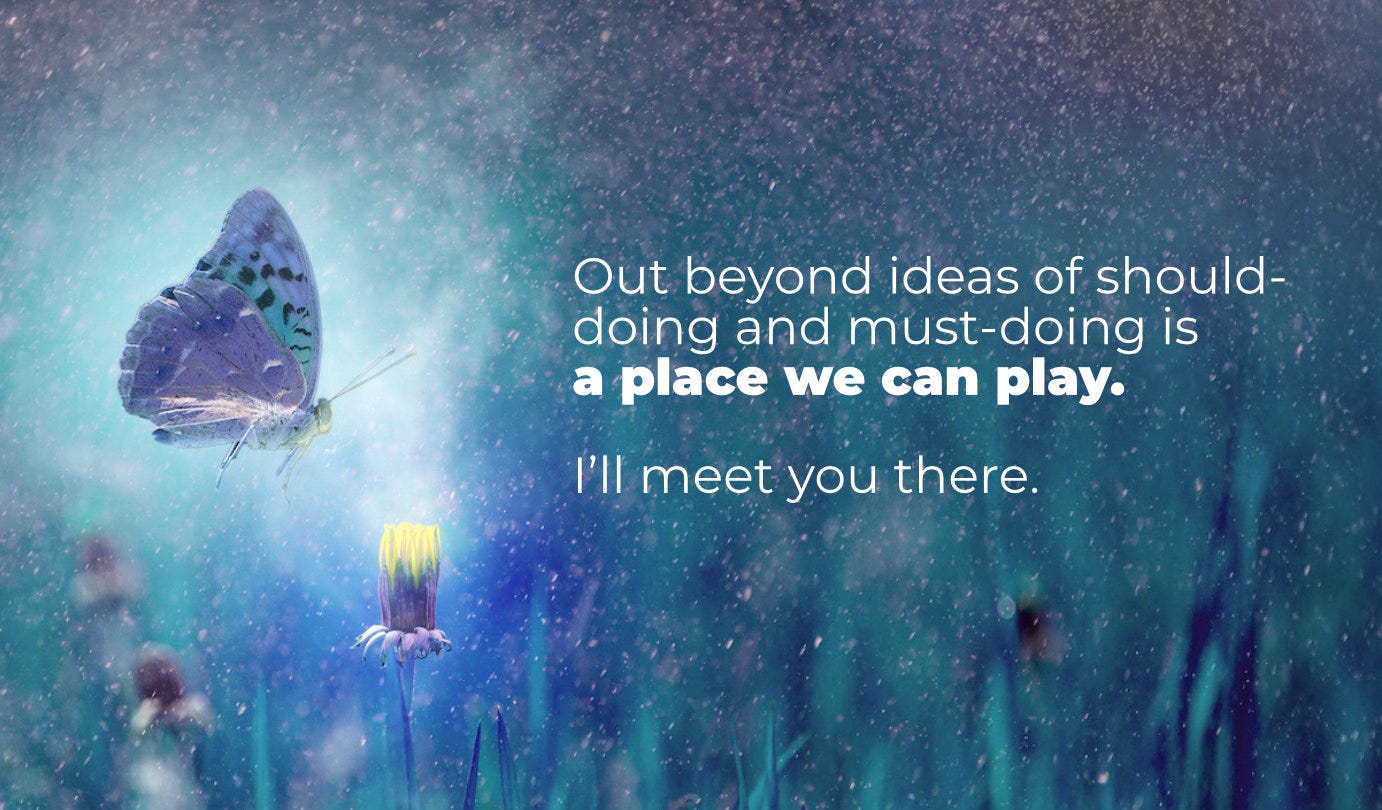How to jump out of boxes
The practice of undoing mental habits & re-finding intrinsic motivation
Hi. It’s me.
There is a certain way it feels when I’m writing something that is breaking new ground for me. That is the kind of writing I want to do in this newsletter.
I don’t want to write what I already know. I want to write to find out what I have to say. I want to write what is alive and right now. I want to write as a process of self-discovery.
But our brains form habits. They are habit-forming machines.
So even though this whole newsletter is pretty new, I am already finding myself struggling to not get into the mode of writing about the same kinds of things I wrote about before.
For example, I’ve written a lot about my unmasking neurodivergence journey lately, and that journey continues. I am still in a daily process of re-examining my past, re-understanding myself, and redesigning my life to meet needs I didn’t know I had.
And so when I sat down to write this newsletter, that’s what I started writing about. But it didn’t feel right. I didn’t feel that energized, excited feeling.
But I kept struggling with it anyway. It took me several hours to realize that I don’t want to write about that today. My mind had formed a habit already, and I hadn’t realized it.
Self-liberation is a practice.
I still often get stuck in that vague struggle feeling, and have to sit down and ask myself, “What am I doing here? What am I trying to accomplish with this?”.
Our brains form habits, and our societies are made up of habit-forming brains. There is so much energy behind, “This happened before, it should happen again”. And that’s often a good thing. Habits are wonderful when they support our health and wellbeing. But they are not great when they impede our creativity, and they can be terrible if they keep us stuck in bad situations or harmful patterns.
Self-liberation is about developing choice over what habits we develop and which ones we unravel. It’s about rejecting the habits that we picked up by osmosis but don’t actually work for us, and building new ones that are supportive of our thriving.
What I’m trying to do here is to continually find my own learning edge and explore it with you. Which by definition is not a habit. It can’t be, because my edge is a place that isn’t habitual. Learning means making new connections in my brain.
That’s what makes it a practice.
Practices becoming habits is how spirituality becomes religion, and turns into something that’s about conformity rather than discovery.
So, if you want to be healthy, develop healthy habits and undo unhealthy ones.
But if you want to feel alive and be creative, develop a practice of countering the habits your brain naturally develops as you live your life. And seek out that feeling of, Oh, I haven’t been here before!
The way I do this is:
Noticing I’m not having the experience I set out to have, and my motivation is flagging.
Ask myself questions to reconnect with my intrinsic motivation: Why am I writing? What do I want to get out of this?
Refocus and recommit to the original purpose. (Or, if I really can’t find it, that means I need to move on).
Here’s how not to do it:
Notice your motivation is flagging.
Try to add more extrinsic motivation to force yourself to do it anyway, while never examining what happened to your motivation.
Relying on extrinsic motivation and replacing my intrinsic motivation with it is a good way to get burned out on whatever it is I am doing. It’s not a good fuel for me. That’s why I’ve worked so hard to develop my intrinsic awareness skills, and structure my life for maximum freedom.
Ok, that’s all I seem to have to say today. 😁
P.S. Here is a preview of a project I’m working on in this direction, at the intersection of business and productivity and play:




You’d make for an exceptional therapist ♥️